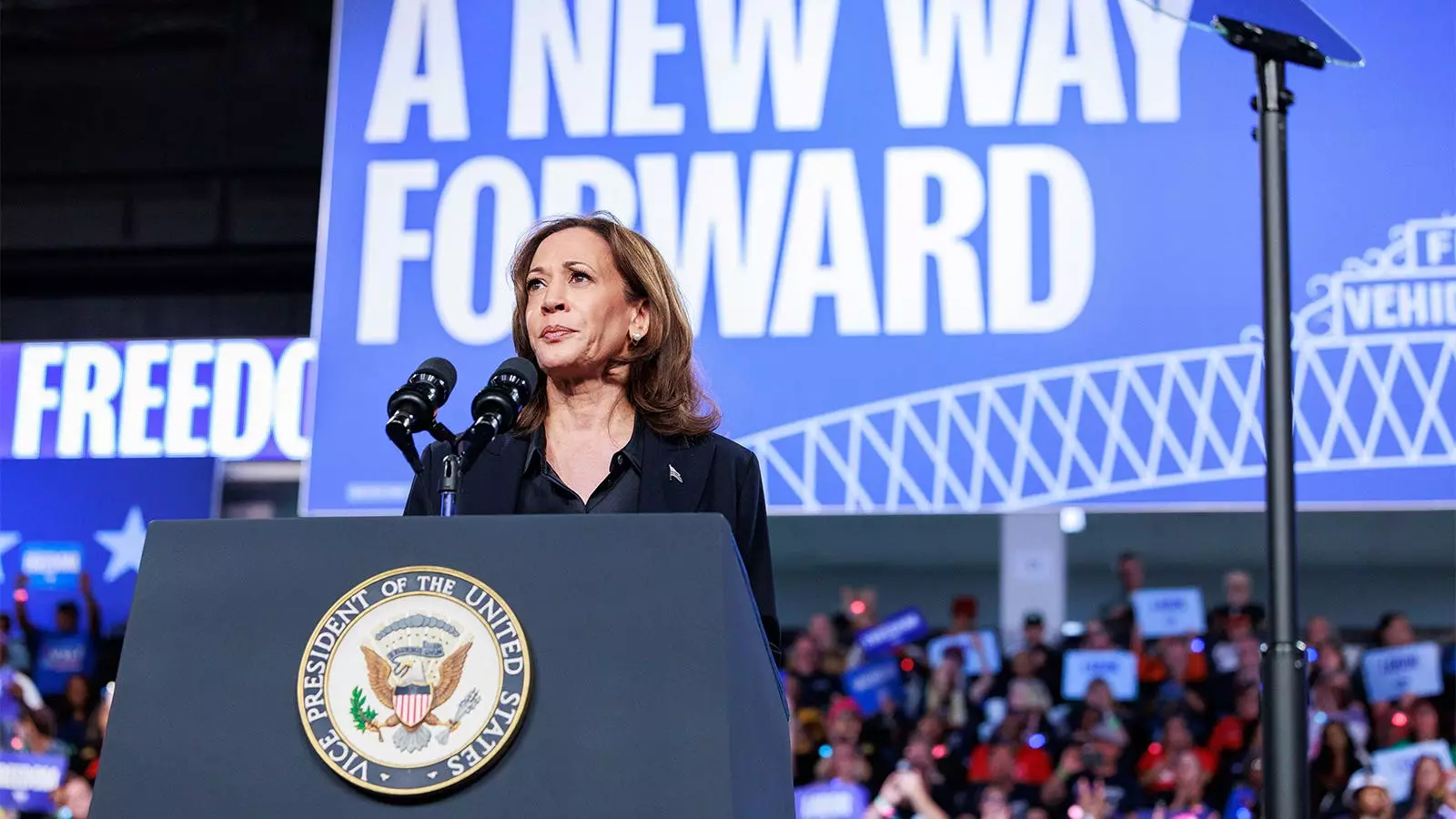Vice President Kamala Harris recently received a public endorsement of her health, with a detailed report from her physician, Dr. Joshua Simmons, affirming she is in “excellent health.” This announcement, released through a comprehensive memorandum, aims to quell any concerns about the Vice President’s fitness to serve in a demanding role, particularly as she is a candidate for future presidential elections. Yet, with any public disclosure, it is crucial to analyze not just the facts presented but also the implications, interpretations, and the broader context in which they exist.
Dr. Simmons describes Harris as a healthy 59-year-old female who is capable of fulfilling presidential responsibilities owing to her “physical and mental resiliency.” This language suggests a deliberate attempt to not only assure the public but also to reinforce Harris’s capability in the political realm, a crucial aspect as age and health become focal points in electoral campaigns. The notes from her most recent physical exam in April were characterized as “unremarkable,” indicating no alarming findings; however, the term can also evoke a sense of unexciting normality that sometimes raises questions about the thoroughness of medical evaluations.
The report highlights Harris’s medical history, including seasonal allergies and a maternal risk factor for colon cancer due to her mother’s history with the disease. By adhering to recommendations for early screening, including routine colonoscopies starting at age 40, Harris displays a proactive approach to her health. This exemplifies an important aspect of medical responsibility in individuals with familial health risks. Nonetheless, one might question whether her compliance with preventive care adequately addresses the potential psychological burden that such family histories impose.
Simmons outlines Harris’s healthy lifestyle choices, including a balance of aerobic and strength-training exercises, a nutritious diet, and moderation in alcohol consumption. These attributes are often highlighted in public figures to signify a disciplined, health-conscious persona. However, while these choices are commendable, they can inadvertently place societal pressure on individuals to meet similar standards, leading to unhealthy comparisons and unrealistic expectations of wellness.
Furthermore, the report mentions that Harris takes vitamin D3 supplements for bone health and uses corrective lenses for mild myopia, all of which portray a conscientious and relatable side of the Vice President. Nonetheless, these details also raise the question of whether such a focus on physical health might overshadow other dimensions of well-being, including mental health, which remains a critical yet often neglected conversation in political spheres.
The effectiveness of the medical report in alleviating public concerns about Harris’s health largely depends on prior perceptions. Dr. John Sotos emphasizes that unless voters previously harbored doubts regarding her wellness, this disclosure may have limited impact beyond the contrasting narrative it casts against health disclosures surrounding her political opponent, Donald Trump.
With this segmentation halting a deeper inquiry into broader health issues in the political arena, one can argue that the motives behind such medical reports may not solely focus on transparency but also on crafting a narrative that strengthens the political image. The absence of candid engagement with health concerns leads to speculation and potential mistrust, especially when both candidates opt to limit access to additional questions regarding their health.
In the vein of health disclosures from politicians, the case with Kamala Harris presents a layered narrative. The medical report showcases a healthy individual capable of performing presidential duties and seeks to diffuse speculation regarding her fitness. However, it also reflects the broader political context that prioritizes image over the complexities related to health, both physical and mental.
As the race advances, public skepticism and demands for transparency likely will not relent, especially if candidates choose to adopt polished, scripted responses. The need for genuine discourse surrounding health is more pressing than ever, and while the report on Harris’s health may serve to calm fears for now, it simultaneously highlights the necessity for deeper engagement and understanding regarding the health of those who seek the highest offices in the nation. This discourse is not just beneficial for the candidates themselves, but essential for the electorate to make informed decisions regarding their leaders’ capabilities.


Leave a Reply